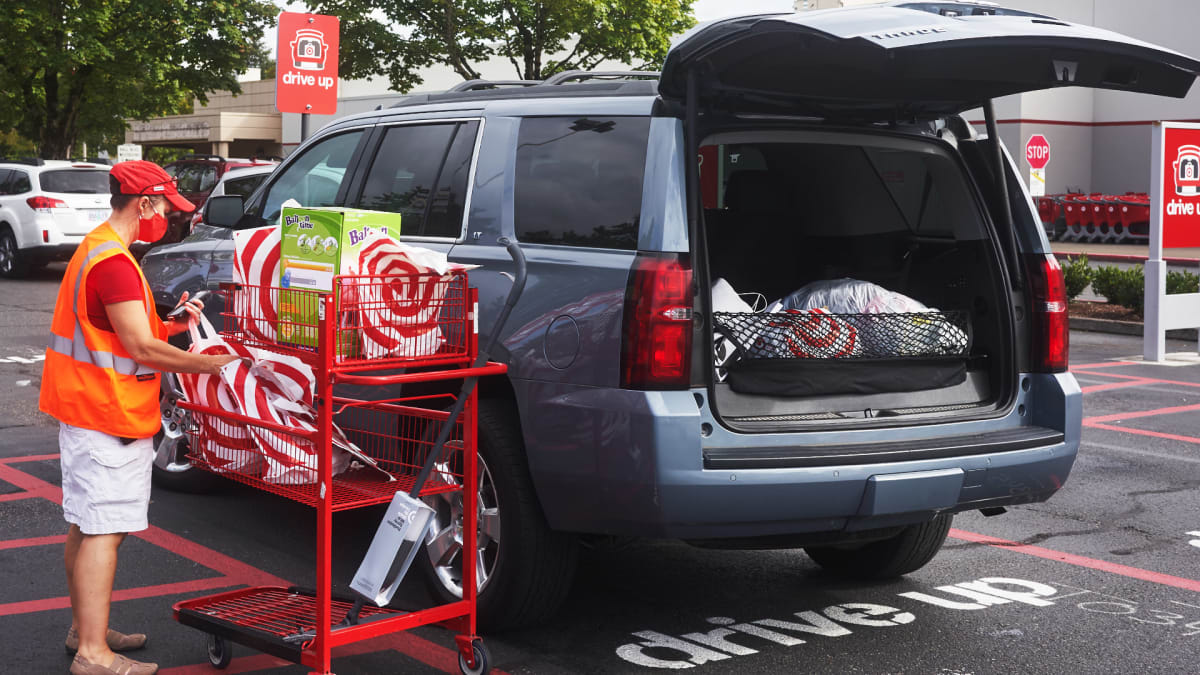
Retailers are constantly wrestling with emerging technologies like artificial intelligence, virtual reality, and robots. But as Target Corporation (TGT) has discovered, effective solutions can be quite simple — sometimes to the point of being quite obvious to the casual observer.
The Minneapolis-based retailer has heavily invested in its ability to deliver online orders the next day. In 2017, the company paid $550 million to acquire Shipt, a company which also deploys contractors to personally shop and deliver food from Target stores.
DON'T MISS: Mark Zuckerberg Launching A New App Directly Targeting Twitter
And Target plans to spend $100 million to build more than 15 “sortation centers” across the country by the end of 2026. At these locations, Shipt and other third party drivers pick up products and deliver them to consumers 24 hours after they placed the order.
Same-day and next-day deliveries are becoming increasingly popular and Target, like most retailers, has been struggling to keep up. So the company came up with a rather intuitive solution: get Shipt drivers to drive bigger vehicles.
Eureka!
Bigger vehicles mean more packages
A year ago, Shipt drivers with ordinary sized sedans were exclusively delivering packages from sortation centers. Now Target is directing such orders to Shipt drivers who own vans and SUVs. A company spokeswoman said some Shipt drivers also drive “high capacity vehicles” provided by a “third party,” though she didn’t elaborate.
What a difference additional trunk space makes.
“Over the past year, across all of our markets served by our sortation centers, we have shifted more routes to larger passenger vehicles and early results have been positive,” chief operating officer John Mulligan recently told analysts.
“Compared with routes previously served by sedans, SUVs and minivans can deliver more than double the number of packages per route,” he said. “Our high capacity vans can service nearly five times as many packages. And beyond capacity, the use of larger vehicles enables further route optimization, increasing the number of packages that can be delivered per hour.”
According to Target, these larger vehicles accounted for 65% of its last mile deliveries in the first quarter compared to zero during the same period a year ago.
“This resulted in meaningful cost savings for our last mile delivery program overall,” Mulligan said.
Amazon's struggles with profitable e-commerce
After a boom in e-commerce sales following the pandemic, online purchases have started to slow for several major retailers. Earlier this week, Target said digital comparable sales during the first quarter fell 3.4% compared to a gain of 3.2% during the same period in 2022.
But Target executives don’t seem unduly alarmed. Under CEO Brian Cornell, the company has adopted a holistic approach towards the business in which Target focuses on crafting long-term relationships with consumers, however they want to shop.
And physical stores, not its digital operations, anchor that strategy. For one thing, Target fills more than 95% of its online orders from its stores, which, unlike Amazon Inc. (AMZN), allows it to actually make money from e-commerce.
Since Amazon doesn’t operate physical stores except for a few Amazon Fresh locations, the company has had to build a large, expensive, and complex network of warehouses, fulfillment centers, and delivery depots.
As a result, Amazon has struggled to consistently generate profits from online sales, prompting the company to restructure its national delivery network to a more regional system.
That last mile to consumers is especially costly, especially for same day or next day deliveries. Capgemini consulting firm previously estimated that last mile services account for 41% of total supply chain costs, more than double than any other type of costs, including warehousing and parceling.
The group studied a last mile delivery firm, which it did not name, and determined that the service cost the company an average of $10.10 per order while the customer only pays an average of $8.08.
Easing the burden on stores
Target has developed its own way to make last mile deliveries more efficient. To ease the burden on store workers filling online orders, the retailer decided to build a network of sortation centers that collect packages from groups of 30 to 40 local stores. There, Shipt and other third party drivers transport goods to their final destinations.
“By removing the sorting process from the backroom of stores, Target saves valuable time and space for store teams to fulfill additional orders and serve more guests,” the company said in a statement.
These sortation centers are actually cheap to build and operate, Mulligan, the chief operating officer, said.
“In fact, it's because of the relative simplicity in the design of these buildings and the efforts of an incredibly innovative and energetic team that we've been able to scale the number of these buildings so quickly,” he told analysts.
The company currently operates nine sortation centers in Chicago, Denver, and locations in Minnesota, Texas, Georgia and Pennsylvania. Since 2020, the retailer said the number of orders delivered to consumers the next day has grown 150%. Target expects to deliver 50 million packages via sortation centers in 2023 – doubling from last year.
In addition, Target has been testing opening sortation centers to serve other sortation centers. Earlier this month, Target debuted a sortation center in Smyrna, Georgia, which essentially acts as an extension of the existing center in Atlanta.
The new facility allows Target to penetrate deeper into Greater Atlanta with its last mile services. The company estimates it can now reach 3 million customers in the metro region.
And at the center of this network is the humble physical store.







